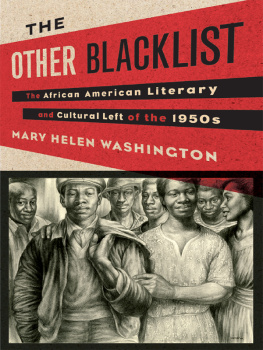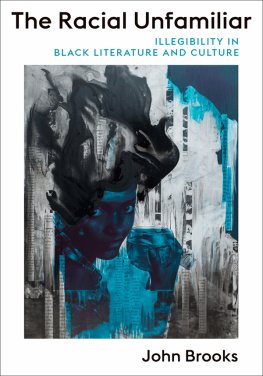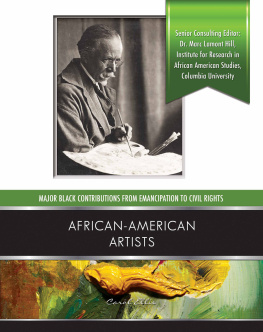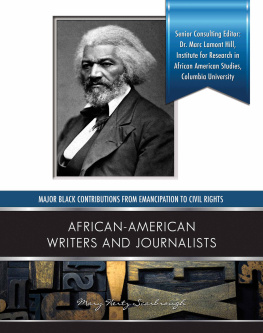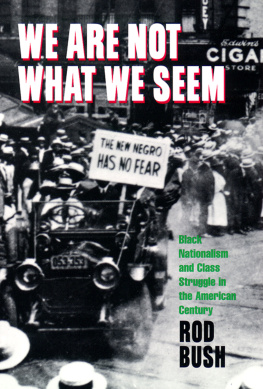THE OTHER BLACKLIST
MARY HELEN WASHINGTON
THE OTHER BLACKLIST
The African American Literary and Cultural Left of the 1950s
Columbia University Press / New York
Columbia University Press
Publishers Since 1893
New York Chichester, West Sussex
cup.columbia.edu
Copyright 2014 Columbia University Press
All rights reserved
E-ISBN 978-0-231-52647-0
Library of Congress Cataloging-in-Publication Data
Washington, Mary Helen.
The Other Blacklist : the African American Literary and Cultural Left of the 1950s / Mary Helen Washington.
pages cm
Includes bibliographical references and index.
ISBN 978-0-231-15270-9 (cloth : alk. paper) ISBN 978-0-231-52647-0 (e-book)
1. American literatureAfrican American authorsHistory and criticism. 2. American literature20th centuryHistory and criticism. Politics and literatureUnited StatesHistory20th century. African AmericansIntellectual life20th century. 5. Right and left (Political science) in literature. 6. Cold War in literature. I. Title.
PS153.N5W349 2014
810.9896073dc23
2013031563
A Columbia University Press E-book.
CUP would be pleased to hear about your reading experience with this e-book at .
COVER DESIGN: Julia Kushnirsky
COVER IMAGE: Charles White, Lets Walk Together, from the Charles L. Blockson Afro-American Collection, Temple University Libraries.
References to websites (URLs) were accurate at the time of writing. Neither the author nor Columbia University Press is responsible for URLs that may have expired or changed since the manuscript was prepared.
For the next generation of our tribe:
Darionne Washington
Cordell Washington
Denzel Washington
Cordajah Washington
Rodney Washington
Sean Washington
Azaria Washington
Aliyah Washington
Olivia Kyla Mitchell
Solomon Mitchell
Nathaniel Wilson
Xavier Wilson
May they jump at the sun.
CONTENTS
I HAVE LIVED with this book for such a long time (twelve years, at last count) that the list of people who have sustained me has grown long, but remembering the generosity that has been constant over these years is a great and humbling pleasure. The support of my colleagues at the University of Maryland, College ParkTheresa Coletti, Kent Cartwright, Christina Walter, Bill Cohen, Bob Levine, Howard Norman, Jackson Bryer, Randy Ontiveros, John Auchard, David Wyatt, Martha Nell Smith, Zita Nunes, Merle Collins, Joshua Weiner, Michael Collier, Edlie Wong, Keguro Macharia, Shawn Saremi, and Barry Pearsonhas been critical in reminding me that it only counts when you turn your ideas into a physical object. The university has generously supported my work with numerous research grants from the College of Arts and Humanities, including the Distinguished Faculty Research Fellowship and travel grants from the Universitys Driskell Center for the Study of the African Diaspora. My wonderful year in Los Angeles (20002001), supported in part by a fellow ship from the UCLA Institute for American Culture, enabled me to jump-start this project.
My UCLA crew was there at the beginning of The Other Blacklist and supplied great moral and intellectual support: Richard Yarborough, who has always been my best scholarly mentor, friend, supporter, and reader, and Harryette Mullen, who surely knows how important she has been as inspiration, cheerleader, generous colleague, model scholar, and excellent LA cultural tour guide. Gerard Mar led me on several hikes through the mountains of LA, which helped ground me for periods of silent, butt-to-chair work. He and King-Kok Cheung provided me with a beautiful LA retreat house that year, overlooking the canyon, a perfect place to work. I am very grateful for the people at the many institutions where I conducted research, especially to the UCLA institute, the staff at the Schomburg Center for Research on Black Culture, Diana Lachatanere, and Colin Palmer. I have also received support from the University of California, Berkeley, Bancroft Library (especially Susan Snyder), the Moorland-Spingarn Library of Howard University (especially Joellen ElBashir), the Cleveland Historical Society, Western Reserve Historical Museum, Chicago Art Institute, the Chicago Public Library (especially Michael Flug and the staff at the Vivian Harsh Collection), and the Cleveland Public Library.
Thanks to the bunch of radicalsBill Maxwell, Jim Miller, Jim Smethurst, Alan Wald, Barbara Foley, Brian Dolinar, James Hall, and Bill Mullenwho encouraged, critiqued, read drafts, kept me going, and did the research that made mine possible. Mark Pascale (Chicago Art Institute) and Daniel Schulman, art scholars extraordinaire, shared their work on Charles White and made that chapter possible. Doug Wixon steered me to the important relationship between Gwen Brooks and Jack Conroy and shared his research generously. Peter Clothier graciously sent me all of his biographical and critical material on Charles White. Thanks to my excellent readers: Richard Yarborough, Zita Nunes, Cheryl Wall, Christina Walter, Harryette Mullen, Jim Smethurst, Alan Wald, Bill Maxwell, Jean Sammon, and Ponchita Argieard. Cheryl Wall may not even remember, but she read early drafts of the Lloyd Brown chapter and gave invaluable advice. Paul Lauter has been there as a friend and mentor since he roped me into the Yale conference in 1976, and he encouraged and sustained my early work on black women writers. The art historian Professor Patricia Hills read and commented on the Charles White chapter with honesty and brilliant suggestions. The writers Paule Marshall and Alice Walker have always been my friends and supporters, the inspiration for my work on black women writers, and examples of women who take their lives and work seriously.
Many thanks are due my Books98 crew for their deep respect for the literary word and loving responses to what must have seemed like an interminable writing process: Shirley Parry, Elizabeth (Ginger) Patterson, Jerome (JP) Patterson, Dominique Raymond, Kent Benjamin, Sherry Weaver, Mari Matsuda, Chuck Lawrence, Karen Outen, Yvette Irving, Jim Miller, Shaun Myers, and Kaylen Tucker. To my Dissertation Crew: you are the reason I entered this field back in the 1970s and the reason I am still here: Laura Williams, Shaun Myers, Kaylen Tucker, Shirley Moody-Turner, Schuyler Esprit, Scott Eklund, Christopher Brown, Robin Harris, Daniel Hartley, Anne Carroll, Roberta Maguire, Kathlene McDonald, Nazera Wright, and Kevin Meehan.
For the example and high standards they set by their superb scholarship: Lawrence P. Jackson, Doug Wixon, Gerald Horne, Penny Von Eschen, Kevin Gaines, Stacy I. Morgan, Nikhil Pal Singh, Barbara Foley, Michael Denning, Judith Smith, Jacqueline Goldsby, Robin D. G. Kelley, Dayo Gore, Erik McDuffie, Alan Wald, Jim Smethurst, Bill Mullen, Edmund Gordon, Sterling Stuckey, and Bill Maxwell (who introduced me to the art of trading FOIA files). I am surrounded here in my study with your books stacked up on all sides, urging me to finish.
For moving this project into digital shape, I owe so much to my research assistant and newly minted Ph.D., Dr. Laura Williams. There were others in this past ten years that moved this production along with their scholarly, editorial, and technological expertise: Anne Carroll, Schuyler Esprit, Scott Eklund, Cecelia Cancellaro, T. Susan Chang, and Robin Evans.
For giving me total access to the Charles White papers and thus making the Charles White chapter and the cover of

